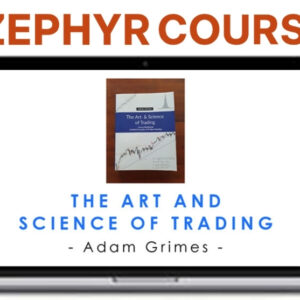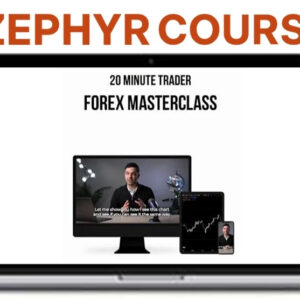To reach the $100K Dollars Club as a trader, you need to master discipline, resilience, and emotional control. You’ll face losses, but treat them as feedback, not failure. Stick to your trading plan, stay consistent, and never let emotions dictate your decisions. Resilience will help you bounce back from setbacks, and discipline guarantees steady growth. If you’re ready to boost your trading psychology, there are more practical strategies waiting just ahead.
Building Resilience: How Top Traders Handle Losses
Although losses are inevitable in trading, successful traders don’t let setbacks define them. You need to approach each loss as a lesson, not a failure. Instead of chasing immediate loss recovery, pause and assess what went wrong. This prevents emotional reactions that usually lead to bigger mistakes.
Shifting your mindset is essential. View losses as feedback, not personal shortcomings. This mindset shift helps you detach your self-worth from your trading results. Top traders focus on long-term growth, knowing that resilience comes from maneuvering through setbacks with composure.
If you practice seeing losses as temporary, you’ll find it easier to regain your confidence and stick to your trading plan. Building resilience means embracing challenges, learning from them, and staying committed to improvement.
The Discipline Behind Consistent Profits
Resilience helps you recover from setbacks, but long-term trading success also demands unwavering discipline. You can’t rely on luck or intuition alone; instead, you need structured trading routines that keep you focused and consistent.
Start each day by reviewing your trading plan, setting clear goals, and sticking to your established profit strategies no matter what the market throws your way. Discipline means following your entry and exit rules, not chasing quick gains or letting fear dictate your moves.
By tracking your trades and analyzing outcomes, you’ll refine your approach and avoid costly mistakes. Over time, disciplined routines help you build habits that support steady growth.
Mastering Emotional Control in High-Stakes Trading
Every trader faces intense pressure when large sums or critical decisions are on the line, but your ability to control emotions often separates lasting success from costly mistakes.
Emotional awareness is your first line of defense—recognizing fear, greed, or frustration as they arise lets you respond, not react. You’ll need effective stress management to keep a clear head and make rational choices under pressure.
Consider these strategies:
- Track Your Emotions: Keep a trading journal, noting your feelings and decisions to spot emotional patterns.
- Pause and Breathe: Step back before making big moves; use breathing exercises to regain composure.
- Set Clear Rules: Define entry, exit, and risk limits ahead of time to reduce impulsive decisions.
Mastering emotional control elevates your trading game.
Frequently Asked Questions
What Educational Background Is Common Among Successful Traders?
You’ll often find successful traders have a financial education, but it’s not a strict requirement. What matters most is that you develop strong analytical skills, understand market trends, and continuously learn about finance and trading strategies.
How Do Traders Select the Markets or Assets to Trade?
When you select markets or assets to trade, you’ll perform market analysis to spot opportunities and trends. You’ll also conduct risk assessment, ensuring you match your trading style and risk tolerance with the characteristics of each market.
What Tools or Software Do Professional Traders Rely on Daily?
You rely on advanced trading platforms for real-time execution and use charting software for thorough market analysis. You’ll also depend on news aggregators, risk management tools, and custom indicators to stay ahead in fast-moving financial markets.
How Important Is Networking Within the Trading Community?
Networking is essential in trading. You’ll build valuable trading relationships and gain community support. Sharing insights and strategies helps you grow, stay updated, and avoid mistakes. Don’t trade in isolation—connect with others to boost your success.
What Are the Initial Capital Requirements for Joining the K Dollars Club?
When you consider initial capital requirements, you’ll need to focus on smart capital allocation and risk management. You don’t have to start big, but make sure your funds align with your trading plan and risk tolerance.
Building Resilience: How Top Traders Handle Losses
Although losses are inevitable in trading, successful traders don’t let setbacks define them. You need to approach each loss as a lesson, not a failure. Instead of chasing immediate loss recovery, pause and assess what went wrong. This prevents emotional reactions that usually lead to bigger mistakes.
Shifting your mindset is essential. View losses as feedback, not personal shortcomings. This mindset shift helps you detach your self-worth from your trading results. Top traders focus on long-term growth, knowing that resilience comes from maneuvering through setbacks with composure.
If you practice seeing losses as temporary, you’ll find it easier to regain your confidence and stick to your trading plan. Building resilience means embracing challenges, learning from them, and staying committed to improvement.
The Discipline Behind Consistent Profits
Resilience helps you recover from setbacks, but long-term trading success also demands unwavering discipline. You can’t rely on luck or intuition alone; instead, you need structured trading routines that keep you focused and consistent.
Start each day by reviewing your trading plan, setting clear goals, and sticking to your established profit strategies no matter what the market throws your way. Discipline means following your entry and exit rules, not chasing quick gains or letting fear dictate your moves.
By tracking your trades and analyzing outcomes, you’ll refine your approach and avoid costly mistakes. Over time, disciplined routines help you build habits that support steady growth.
Mastering Emotional Control in High-Stakes Trading
Every trader faces intense pressure when large sums or critical decisions are on the line, but your ability to control emotions often separates lasting success from costly mistakes.
Emotional awareness is your first line of defense—recognizing fear, greed, or frustration as they arise lets you respond, not react. You’ll need effective stress management to keep a clear head and make rational choices under pressure.
Consider these strategies:
- Track Your Emotions: Keep a trading journal, noting your feelings and decisions to spot emotional patterns.
- Pause and Breathe: Step back before making big moves; use breathing exercises to regain composure.
- Set Clear Rules: Define entry, exit, and risk limits ahead of time to reduce impulsive decisions.
Mastering emotional control elevates your trading game.
Frequently Asked Questions
What Educational Background Is Common Among Successful Traders?
You’ll often find successful traders have a financial education, but it’s not a strict requirement. What matters most is that you develop strong analytical skills, understand market trends, and continuously learn about finance and trading strategies.
How Do Traders Select the Markets or Assets to Trade?
When you select markets or assets to trade, you’ll perform market analysis to spot opportunities and trends. You’ll also conduct risk assessment, ensuring you match your trading style and risk tolerance with the characteristics of each market.
What Tools or Software Do Professional Traders Rely on Daily?
You rely on advanced trading platforms for real-time execution and use charting software for thorough market analysis. You’ll also depend on news aggregators, risk management tools, and custom indicators to stay ahead in fast-moving financial markets.
How Important Is Networking Within the Trading Community?
Networking is essential in trading. You’ll build valuable trading relationships and gain community support. Sharing insights and strategies helps you grow, stay updated, and avoid mistakes. Don’t trade in isolation—connect with others to boost your success.
What Are the Initial Capital Requirements for Joining the K Dollars Club?
When you consider initial capital requirements, you’ll need to focus on smart capital allocation and risk management. You don’t have to start big, but make sure your funds align with your trading plan and risk tolerance.











 AI Blogger + 10 Minute Emails – Matt Giaro
AI Blogger + 10 Minute Emails – Matt Giaro  Ash Ambirge – Selfish School 2023
Ash Ambirge – Selfish School 2023  Alchemist FX – Alchemist FX 2023
Alchemist FX – Alchemist FX 2023